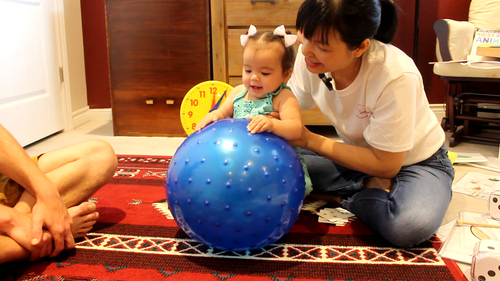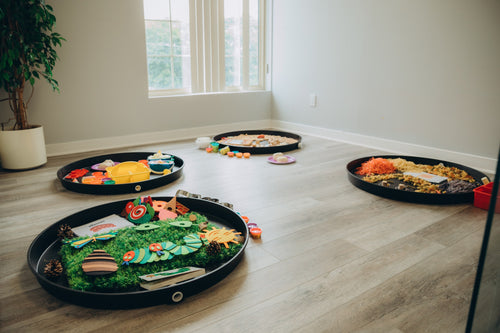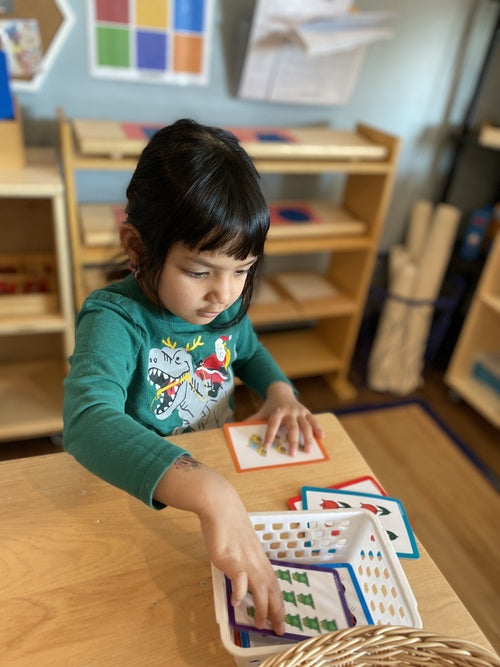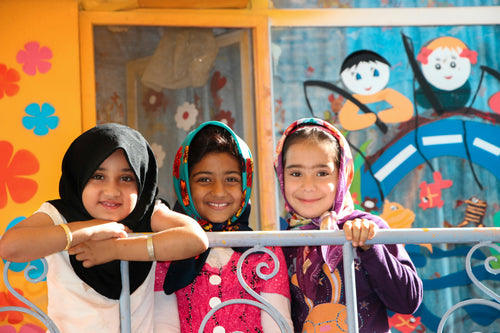Play is an essential part of a child's development, especially when it comes to brain growth. Through play, children develop cognitive skills, social connections, and emotional well-being. One powerful way to enhance brain development is through memory games. These games not only keep kids entertained but also sharpen their memory, focus, and problem-solving skills.
In this article, we’ll explore the vital role play has in brain development, the specific benefits of memory games for children, and provide 10 fun ideas for memory-boosting activities.
The Importance of (Memory) Play in Brain Development
For children, play is not just about having fun—it's crucial for developing critical thinking, language skills, and creativity. Play stimulates the brain by encouraging children to explore their surroundings, solve problems, and interact with others. It helps children build neural connections that are fundamental for learning and memory.
Active play engages multiple areas of the brain, improving a child’s ability to focus, retain information, and process complex thoughts. Whether it’s physical play, role-playing, or games that require concentration, these activities enhance a child’s cognitive flexibility and adaptability.
Memory games, in particular, are highly effective in boosting brain power as they demand mental focus and the ability to retain and recall information. When a child repeatedly uses their memory, they strengthen the neural pathways responsible for short- and long-term memory, making them better at learning new information over time.

Benefits of Memory Games for Kids’ Brains
Memory games are a fantastic way to enhance cognitive development in children. Here are some key benefits:
- Improved Concentration:Memory games require children to focus for extended periods, which helps improve their concentration and attention span.
- Enhanced Problem-Solving Skills:By remembering patterns and details, kids learn how to think strategically and find solutions faster.
- Boosts Short and Long-Term Memory:Regular practice with memory games can strengthen both short- and long-term memory, allowing children to retain information more effectively.
- Develops Visual and Auditory Memory:Many memory games involve remembering what children see or hear, stimulating different parts of the brain and helping them improve in these areas.
- Encourages Social Interaction:Playing memory games with friends or family promotes social skills like communication, teamwork, and turn-taking, which are essential for emotional intelligence.
By incorporating memory games into your child's playtime, you can help them develop vital cognitive abilities that will benefit them throughout their lives.
10 Fun Memory Games to Boost Your Child’s Brain
Are you looking for memory games to play with your kids at home or to blow up an upcoming party. Here are 10 fun and engaging memory games that can help boost your child's brain development while keeping them entertained.
1. Matching Pairs
A classic memory game, Matching Pairs involves laying cards face down and having your child flip two cards at a time to find matching pairs. This game strengthens visual memory as kids remember the location of different cards.
How to play:
- Lay out pairs of cards face down.
- Players take turns flipping over two cards at a time.
- If they match, the player keeps the cards; if not, they’re turned face down again.
- The goal is to find all matching pairs.
2. Simon Says
Simon Says is an auditory memory game that encourages kids to remember and follow instructions. It enhances listening skills and requires children to pay close attention to commands.
How to play:
- One player is "Simon" and gives commands beginning with "Simon says."
- Players must only follow the command if it starts with "Simon says."
- If the player follows a command without "Simon says," they’re out.
- This game strengthens focus and attention to detail.
3. Story Chain
This game boosts both memory and creativity by having players create a story one sentence at a time. Each player must remember the sentences that came before to continue the story, reinforcing both short-term and long-term memory.
How to play:
- The first player begins with a sentence, such as "Once upon a time, there was a dragon."
- The next player adds a sentence, building on the first, and so on.
- The story continues, with each player remembering and adding to it.
4. I Went to the Market
This game involves players remembering and listing off items, which helps boost both memory and vocabulary. It's great for encouraging children to focus on specific details and sequence information.
How to play:
- The first player says, "I went to the market and bought (item)."
- The next player repeats the previous item and adds their own.
- The list keeps growing, and players must remember every item in order.
- If a player forgets an item, they’re out.
5. Tray Game
The Tray Game helps children develop visual memory by challenging them to recall a collection of objects. This game encourages attention to detail and quick recall.
How to play:
- Place 10-15 random objects on a tray.
- Allow the child to study the tray for a minute.
- Cover the tray and ask the child to recall as many items as possible.

6. Number Recall
Number Recall strengthens working memory by asking children to remember sequences of numbers. This game can be adjusted for different age groups by increasing the number of digits.
How to play:
- Say a sequence of numbers out loud (e.g., "3-7-2-9").
- Ask your child to repeat the sequence back.
- Increase the length of the sequence as they improve.
7. Puzzles
Puzzles are excellent for improving problem-solving skills and memory. Children must remember where pieces go, boosting their spatial awareness and concentration.
How to play:
- Select a puzzle based on your child’s age.
- As they work through it, encourage them to remember where pieces fit.
8. Memory Scavenger Hunt
In this game, children must remember where they found items during a scavenger hunt. It enhances both visual memory and critical thinking.
How to play:
- Hide several objects around the house or yard.
- Give your child a list of items to find.
- After they find each item, ask them to recall where they found it.
9. Follow the Sequence
This game involves giving kids a sequence of actions or instructions they must follow in order. It strengthens both auditory and visual memory, as well as following directions.
How to play:
- Start with a simple sequence, like "touch your head, clap your hands, jump once."
- Increase the number of steps as the game progresses.
- The child must remember and perform each action in order.
10. Memory Box
Memory Box is a creative way to help kids remember facts or experiences. Children can place special items in a box and, later, recall where each item came from or what it represents.
How to play:
- Fill a box with special objects, like photos, toys, or souvenirs.
- Ask your child to describe each item and explain where they got it or why it’s important.
- This game encourages long-term memory and storytelling skills.
Incorporating memory games into your child’s play routine is a simple and enjoyable way to boost brain development. These games help improve concentration, enhance problem-solving abilities, and strengthen both short- and long-term memory. Plus, they’re fun for both kids and parents!
By using memory games to challenge your child's brain, you're setting the stage for future learning success. Whether it’s through Matching Pairs, Simon Says, or Number Recall, these activities will nurture your child’s cognitive growth while keeping them entertained.
At Smartizen, we use proven techniques like the Glenn Doman and Montessori methods to lay the foundation for our specialized programs, designed to boost memory and cognitive skills in young children. Our hands-on approach encourages curiosity and learning through fun, interactive activities that nurture brain development. Want to see how we can help your child thrive? Sign up for a program tour and trial class and experience the Smartizen difference!








